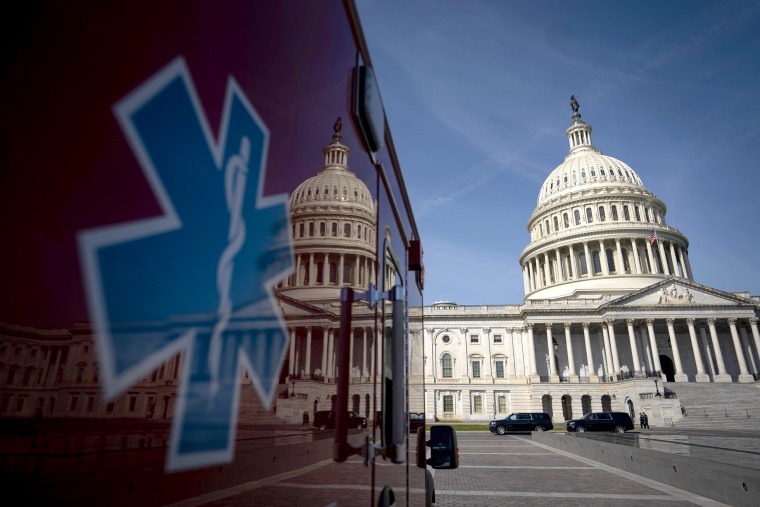At first blush, the name of the legislation doesn't tell us much. After all, the "No Surprises Act" could refer to practically anything.
But what the policy does is protect Americans from surprise medical bills, and as The New York Times reports, as 2022 is poised to begin, so too are these new consumer protections.
For years, millions of Americans with medical emergencies could receive another nasty surprise: a bill from a doctor they did not choose and who did not accept their insurance. A law that goes into effect Saturday will make many such bills illegal. The change is the result of bipartisan legislation passed during the Trump administration and fine-tuned by the Biden administration.
For those who may need a refresher as to how we arrived at this point, let's circle back to our coverage from last year. The underlying issue is relatively straightforward: Americans often go to emergency rooms in a crisis and assume their visit will be covered by insurance. But as part of their emergency care, patients are often treated by out-of-network medical professionals, who don't have contracts with the relevant insurer, which means consumers end up receiving "surprise" invoices, which can be quite expensive.
Imagine, for example, a patient who receives emergency treatment from a surgeon who's part of her network, but an anesthesiologist who isn't. The former would be covered by the patient's insurance plan, but the latter would generate an unexpected and costly bill.
The phenomenon affected so many people — by some assessments, one-in-five emergency-room visits generated "surprise" medical bills — that lawmakers negotiated a legislative fix, which was included in a big economic passage approved late last year. It requires health providers to negotiate fair prices with insurers, relying on outside arbiters as needed. The Times' report added:
If you are having a medical emergency and go to an urgent care center or emergency room, you can't be charged more than the cost sharing you are accustomed to for in-network services. This is where the law's protections are the simplest and the most clear for people with health insurance. You will still be responsible for things like a deductible or a co-payment. But once patients make that normal payment, they should expect no more bills.
There is, however, a catch. While the new ban will protect consumers from hospitals and physicians sending out surprise bills, the policy dose not include ambulances.
That's far from ideal: Ambulatory care happens to be a significant part of the surprise-bill debate.
So why were ambulances excluded? The Times had a related report last year, noting that policymakers cited "the diversity of providers, complex layers of state and local regulation, and a dearth of information about precisely what it costs to keep an ambulance stocked and running. Amid the bruising surprise-billing debate, many lawmakers saw it as one tricky issue too many."
That said, as the "No Surprises Act" takes effect this weekend, it is clearly a step in the right direction that will help a lot of people. It's also a reminder of just how brutally difficult health care policymaking can be: Americans tend to hate these bills, giving lawmakers a strong incentive to help improve the system, but reforms faced major pushback from medical providers and private-equity firms that make a lot of money from these surprise invoices.
When good ideas manage to overcome the opposition, it's progress worth celebrating.

